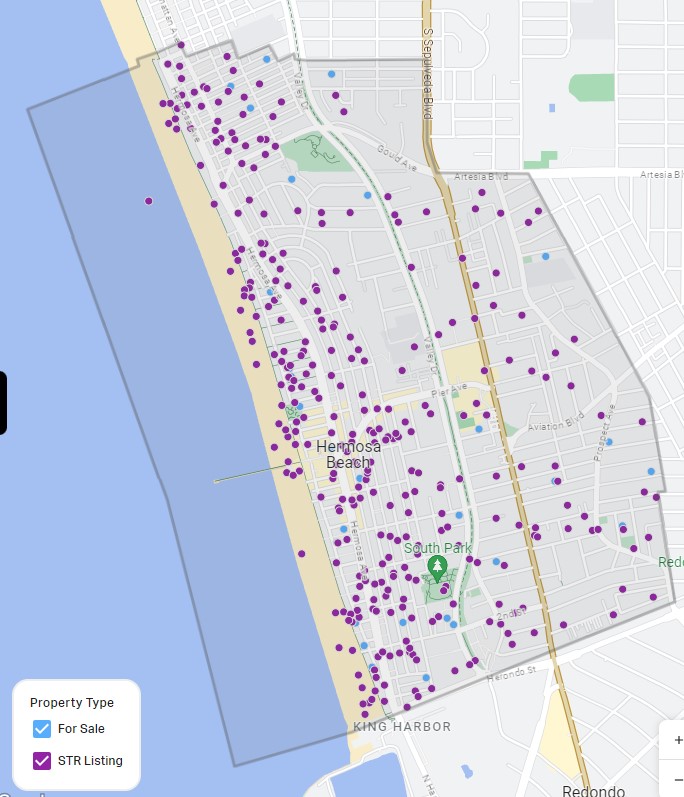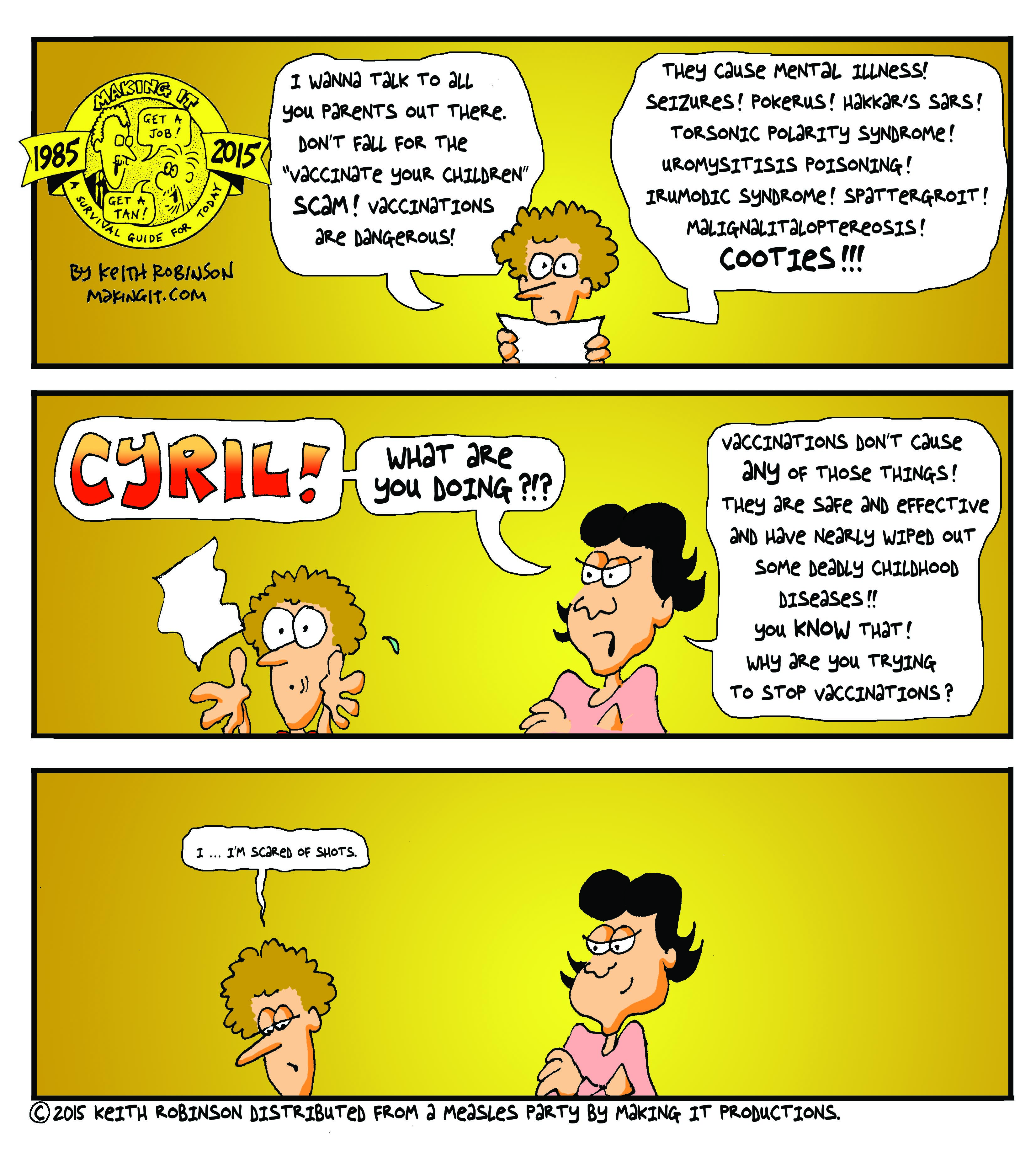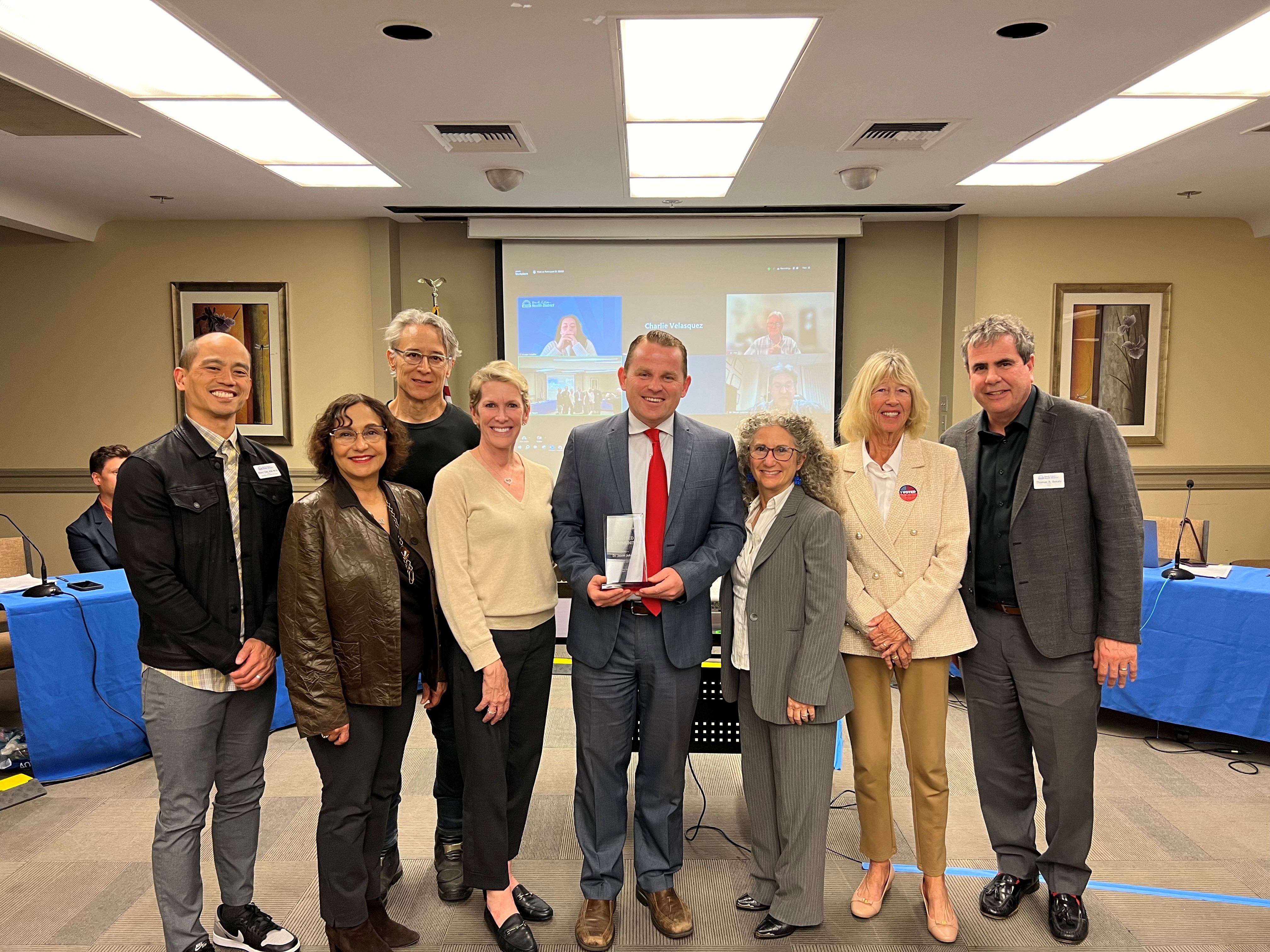by Kevin Cody
In 2016, Hermosa Beach and Manhattan Beach city councils banned short term vacation rentals (STVRs) in residential neighborhoods.
Both cities subsequently were sued by residential property owners with short term rentals in the coastal zone, where most of the cities’ hundreds of STVRs are located. The coastal zone extends 1,000 feet inland from the mean high tide. In Manhattan Beach, the coastal zone includes El Porto and most of the town west of Ardmore Avenue. Hermosa’s coastal zone also includes most of the town west of Ardmore Avenue
Plaintiffs who sued the two cities contended the STVR bans were illegal because they were imposed without approval of the Coastal Commission
Manhattan Beach lost in Superior Court and appeals court and tried unsuccessfully to take its case to the California Supreme Court. It no longer bans STVRs in the coastal zone, though the ban remains in effect throughout the rest of the city’s residential neighborhoods.
Hermosa prevailed in its case at the appellate level and continues to ban STVRs in its coastal zone, as well in its other residential neighborhoods.
Why the neighboring beachfront cities, which are similar in size and demographics, have been treated differently by the courts appears to hinge on the issue of Coastal Commission jurisdiction.
In December 2016, the year both cities banned STVRs, then Coastal Commission Chair Steve Kinsey sent a letter to coastal city development directors asserting local STVR regulations “require a coastal development permit.”

Neither Manhattan nor Hermosa had obtained coastal commission approval for their STVR bans.
Hermosa Beach City attorney Michael Jenkins told the council in April 2017 that the idea that the Coastal Commission had a right to influence a local land use decision like STVRs was “overreach.”
A year later, in January 2018, Jenkins made that argument before the Second District Appellate Court in Johnston v. City of Hermosa Beach. The plaintiffs said they had earned $70,000 a year in STVR income prior to the city’s ban.
Judge P.J. Kreigler acknowledged “all development in the coastal zone requires a Coastal Development Permit.” But the judge agreed with Jenkins in finding Hermosa’s STVR ban “does not constitute a ‘development’…. The ordinance was enacted pursuant to the city’s police power and did not fall under the auspices of the Coastal Commission.”
Four years later, in April 2022, a different Second District Appellate judge ruled in Keen v. Manhattan Beach that Coastal Commission approval is required for local STVR legislation.
Judge John Shepard Wiley Jr. wrote, “This case is about getting a room near the beach…. By law, public access to the beach is a California priority.”
The California Supreme Court declined to hear Manhattan’s request for an appeal.

Hermosa Beach Development Director Carrie Tai, after being asked for an interview about this story, responded in an email statement to Easy Reader from Public Information Officer Ryan Walker:
“Each coastal jurisdiction is unique and certain policy decisions or legal ruling in one are not dispositive or controlling in the other. Hermosa Beach’s STVR ordinance has been legally challenged; however, both trial and the appellate courts have upheld the City’s STVR ordinance as a valid exercise of the City’s authority.
Hermosa Beach City Attorney Patrick Donegan did not respond directly to a request for an interview for this story. But he was copied in an email to Easy Reader from PIO Walker that said, “The City is happy to respond to any questions in writing/via email, including questions that may arise after initial answers are provided.”
Mayor Justin Massey, who was on the council in 2016, said in an interview Tuesday, that over 70 residents commented to the council when it discussed the initial STVR ban. He said the comments were evenly split between those in favor and those opposed to the ban.
“Those in support of the ban,” he said, “were uneasy with the transient nature of short term rentals, and felt they took away from long term housing, and hurt affordability.
“Opponents of the ban said short term rentals provided diversity, and affordable vacation accommodations in the city,” Massey recalled.
He said the council’s subsequent approval of STVRs in the city’s commercial district strikes a reasonable balance between protecting residential neighborhoods and providing affordable vacation accommodations.
Attorney Frank Angel represented the plaintiff in Keen v. City of Manhattan Beach. He believes Hermosa’s ban of STRVs in the residential coastal zone is unenforceable without Coastal Commission approval.
“Hermosa Beach is playing with fire,” he said in an interview this week. “The city can’t cite the Johnston case in defense of its Short Term Rental ban because it is an ‘unpublished’ case.”
Additionally, he said, the Johnston case is six years old, and in the interim three published cases have upheld the Coastal Commission’s jurisdiction over short term vacation rentals.
He quoted Kracke v. City of Santa Barbara, a 2021 Appellate Court ruling, which states, “The Coastal Act required the Commission’s approval of a CDP (Coastal Development Permit), LCP (Local Coastal Program) amendment, or amendment waiver before the ban could be imposed.”
Absent Coastal Commission approval, Angel contended, “The city and their officials incur significant liabilities under the Coastal Act and the Bill of Rights by collecting fines from property owners in the Hermosa Beach coastal zone under STVR regulations they know have no legal effect.”
At its April 9 council meeting, the Hermosa Council voted 4 to 1 to set fines for illegal STVRs at $5,000 for the first violation, $10,000 for the second violation and $20,000 for the third violation.
Hermosa Beach has issued 45 citations for illegal STVRs since last July, according to Community Development Director Carrie Tai. Most citations have been resolved with a warning and voluntary compliance, Tai told the council. She did not state whether any violators were fined.
Hermosa Beach currently has 175 Short Term Vacation Rentals ads on sites such as Vrbo and Airbnb, according to the STVR analysis site AirDNA. It has issued only 14 STVR permits, all in its commercial district, where STVRs are legal.
The Coastal Commission staff continues to contend, as its chair did in 2016, that the Commission has jurisdiction over local short term rental policies.
“The commission has requested that Hermosa Beach apply for a coastal development permit for its regulations governing short-term rentals in the Coastal Zone. The permit is required since the city has yet to adopt a full Local Coastal Program,” Coastal Commission Public Information Officer Joshua Smith wrote in an email to Easy Reader on Monday. ER








